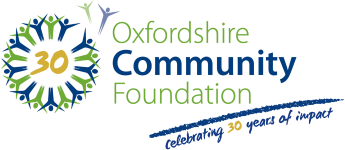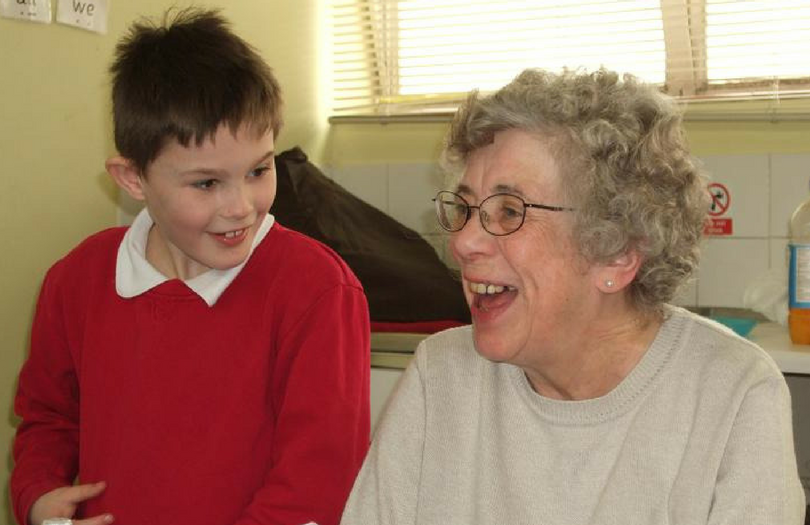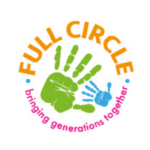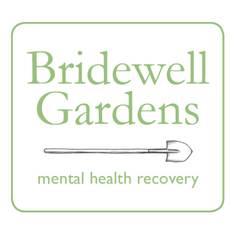Full Circle’s aim is to promote and increase the opportunities for positive contact between the older and younger generations. To achieve this, they work with primary and secondary schools and local communities to set up intergenerational groups bringing together children and older volunteers. Full Circle staff make the links with the schools, recruit older volunteers, support a facilitator for each group and provide ongoing advice for the groups and participants where necessary. The groups meet weekly for an hour during term-time, and members of the group get to know each other, find out about each other’s lives and personal histories, while talking, playing games and learning new skills together. The groups often eat lunch together and the emphasis is on enjoying each other’s company in a sociable environment.
The impact of these relationships is transformative. Children tend to come from fractured families or families where English is not their first language; or they may find it hard to concentrate or make friends. One headteacher says: “These children get support in a way that is not normally offered, where the focus is on warmth and their social and emotional needs.” Close relationships form across the groups; for example, one shy and emotionally vulnerable child now happily joins in with the activities each week.
For the adults, who often live alone or in sheltered housing, volunteering with Full Circle means combating the loneliness and isolation that is all too common in the older generation. One volunteer said she had to buy a diary for the first time in years because her life had become full again. Marjorie, who had very low self-esteem, says that Full Circle has made a huge difference to her feelings of self-worth and her emotional well-being.
Full Circle found itself struggling to make ends meet, having been unsuccessful in several funding applications. OCF initially provided some emergency grant funding, and then held monthly support meetings with Full Circle and linked them up other organisations that could help them. This enabled them to carry out a strategic review of their operations, and re-evaluate their business model. The charity also rejuvenated its trustee board, bringing in greater experience of financial management and communications. These changes have enabled them to make the case for more sustainable funding from their partners, which include grant-making bodies but also the schools and councils that benefit from their work.
Full Circle is now in a much better position, and has been selected by Cherwell District Council to lead a pilot project as part of the Bicester Healthy New Town programme, overseen by the Nuffield Department of Population Health at Oxford University. This means that the charity can continue and expand its transformative work.
Full Circle came to OCF as one of our first ‘Charity Triage’ organisations – a service that helps local charities struggling with funding or governance, provided by OCF in collaboration with OCVA and Charity Mentors. Margaret Melling, Chair of Trustees at Full Circle, comments: “Regular meetings with OCF, and the practical support they could provide, were invaluable as we went through a period of change. OCF was a much-needed critical friend, helping us to stay focused on becoming sustainable whilst retaining the core purpose of our work.”














